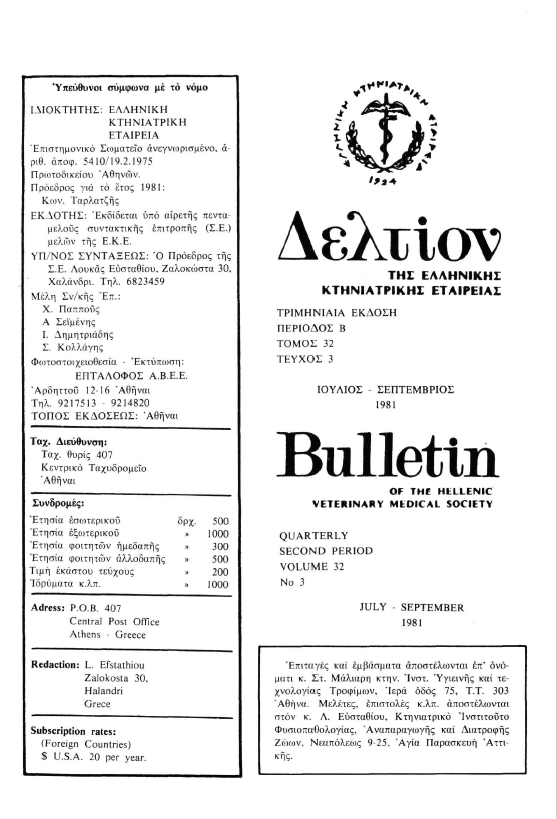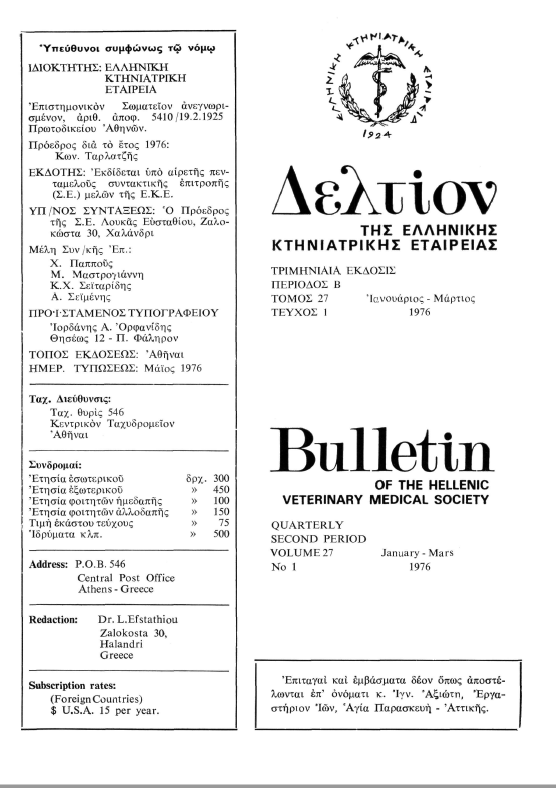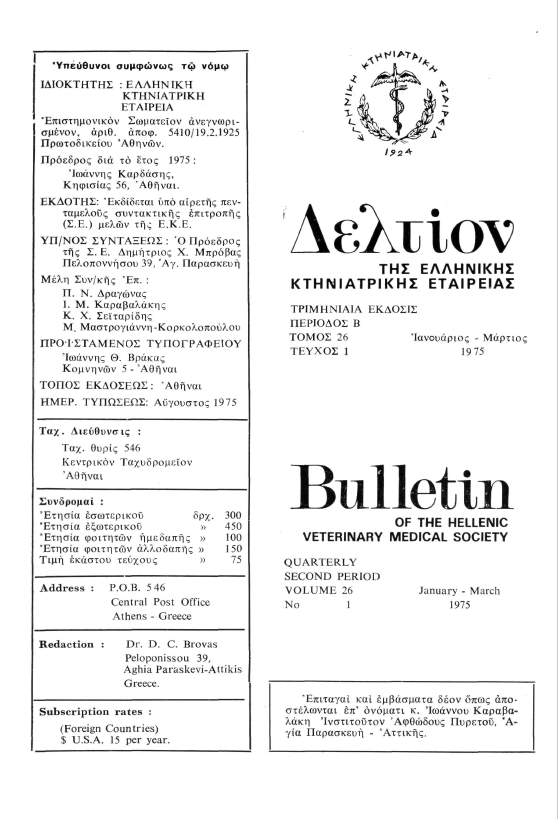Study of various characteristics of same erysipelothrix rhusiopathiae strains isolated from diseased swines
Abstract
At 20 strains of E. rhusiopathiae isolated from acute cases of the disease in swine, the biochemical reactions, the sensitivity to antibiotics and the pathogenic effect to experimental animals were studied. Furthermore it was determined the serotyping of the above strains. The results of this investigation pointed out that: The biochemical reactions of the strains did not appear to have significant deviation from the normal caracteristics of the species. They showed a pronounced sensitivity to tylosin, gentamycin and ampicilline, but some strains were resistant to kanamycin, erythrocine, chloramphenicol and Oxytetracycline too. All the above tested strains were found to be pathogenic to white mice (b.w.20 g), even in a dose of 5X105 orgs/ml. All the 20 strains belongend to serotype A,.
Article Details
- How to Cite
-
ΞΕΝΟΣ Γ., & ΛΑΣΠΙΔΗΣ X. (2019). Study of various characteristics of same erysipelothrix rhusiopathiae strains isolated from diseased swines. Journal of the Hellenic Veterinary Medical Society, 32(3), 183–194. https://doi.org/10.12681/jhvms.21496
- Issue
- Vol. 32 No. 3 (1981)
- Section
- Articles

This work is licensed under a Creative Commons Attribution-NonCommercial 4.0 International License.
Authors who publish with this journal agree to the following terms:
· Authors retain copyright and grant the journal right of first publication with the work simultaneously licensed under a Creative Commons Attribution Non-Commercial License that allows others to share the work with an acknowledgement of the work's authorship and initial publication in this journal.
· Authors are able to enter into separate, additional contractual arrangements for the non-exclusive distribution of the journal's published version of the work (e.g. post it to an institutional repository or publish it in a book), with an acknowledgement of its initial publication in this journal.
· Authors are permitted and encouraged to post their work online (preferably in institutional repositories or on their website) prior to and during the submission process, as it can lead to productive exchanges, as well as earlier and greater citation of published work.





